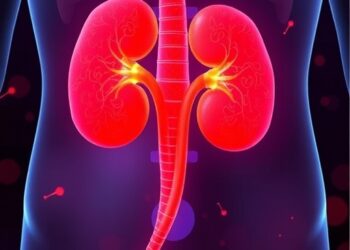Maternal obesity impacts the eating behaviors of offspring via long-term overexpression of the microRNA miR-505-5p, according to a study publishing June 4th in the open-access journal PLOS Biology by Laura Dearden and Susan Ozanne from the MRC Metabolic Diseases Unit, Institute of Metabolic Science, University of Cambridge, UK, and colleagues.
Maternal obesity impacts the eating behaviors of offspring via long-term overexpression of the microRNA miR-505-5p, according to a study publishing June 4th in the open-access journal PLOS Biology by Laura Dearden and Susan Ozanne from the MRC Metabolic Diseases Unit, Institute of Metabolic Science, University of Cambridge, UK, and colleagues.
Previous studies in both humans and animal models have shown that the offspring of obese mothers have a higher risk of obesity and type 2 diabetes. While this relationship is likely the result of a complex relationship between genetics and environment, emerging evidence has implicated that maternal obesity can disrupt the hypothalamus—the region of the brain responsible for nutrition sensing and energy homeostasis. In animal models, offspring exposed to overnutrition during key periods of development eat more, but little is known about the molecular mechanisms that lead to these changes in eating behavior.
In this study, researchers found that mice born from obese mothers had higher levels of the microRNA miR-505-5p in their hypothalamus—from as early as the fetal stage into adulthood. The researchers found that the mice ate more and showed a preference for high-fat foods. Interestingly, the effect of maternal obesity on miR-505-5p and eating behaviors was mitigated if the mothers exercised during pregnancy.
Cell culture experiments showed that miR-505-5p expression could be induced by exposing hypothalamic neurons to long-chain fatty acids and insulin, which are both high in pregnancies complicated by obesity. The researchers identified miR-505-5p as a novel regulator of pathways involved in fatty acid uptake and metabolism, therefore high levels of the miRNA make the offspring brain unable to sense when eating high fat foods. Several of the genes that miR-505-5p regulates have been associated with high body mass index in human genetic studies. The study is one of the first to demonstrate the molecular mechanism linking nutritional exposure in utero to eating behavior.
The authors add, “Our results show that obesity during pregnancy causes changes to the baby’s brain that makes them eat more high fat food in adulthood and more likely to develop obesity. Importantly we showed that moderate exercise, without weight loss, during pregnancies complicated by obesity prevented the changes to the baby’s brain. This helps us understand why the children of mothers living with obesity are more likely to become obese themselves, with early life exposures, genetics and current environment all being contributing factors.”
#####
In your coverage, please use this URL to provide access to the freely available paper in PLOS Biology:
Citation: Dearden L, Furigo IC, Pantaleão LC, Wong LWP, Fernandez-Twinn DS, de Almeida-Faria J, et al. (2024) Maternal obesity increases hypothalamic miR-505-5p expression in mouse offspring leading to altered fatty acid sensing and increased intake of high-fat food. PLoS Biol 22(6): e3002641.
Author Countries: United Kingdom, Brazil
Funding: see manuscript
Journal
PLoS Biology
Method of Research
Experimental study
Subject of Research
Animals
COI Statement
Competing interests: The authors have declared that no competing interests exist.




